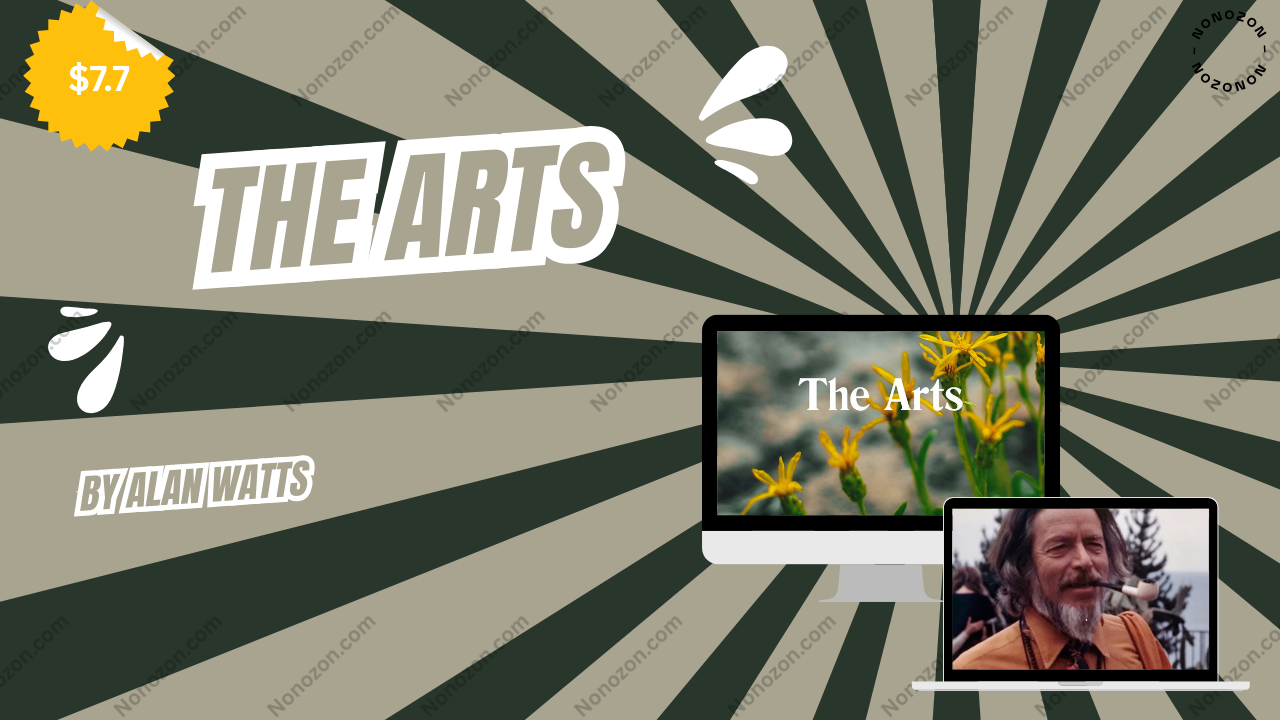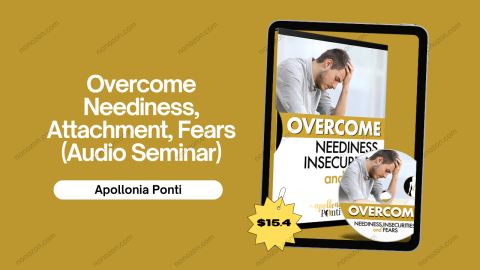The Arts
by Alan Watts
Get The Arts by Alan Watts Digital Download
You can check proof of content here

The Arts by Alan Watts
Overview

Alan Watts on "The Arts": A Deep Meditation on Human Creativity
In The Arts, philosopher Alan Watts explores the powerful bond between creative expression and the human experience. Far more than decorative or entertaining, art becomes, in Watts’ view, a vital medium through which we interpret and express our deepest truths. Known for blending Eastern thought with Western perspectives, Watts contends that art transcends surface-level beauty—it acts as a profound gateway into the essence of consciousness, perception, and existence itself. This article delves into the major themes in Watts’ work, showing how his insights remain highly relevant in today’s intricate and ever-changing world.
The Heart of Art: Interpreting Life Through Expression
Watts begins by examining a range of artistic forms, such as music, painting, and dance. He presents each one as a unique tool for conveying universal human emotions and experiences. Through these mediums, he argues, we bridge the gap between the visible world and the ineffable qualities of our inner reality. For example, where words may falter, a painting can embody sorrow or ecstasy, and music can communicate deep emotional truths across all cultures.
Table 1: Forms of Art and Their Expression According to Watts
| Art Form | Essence Conveyed | Significance |
|---|---|---|
| Painting | Emotional Depth | Visual reflection of human feeling |
| Music | Resonant Emotion | A global language that bypasses verbal limitations |
| Dance | Embodied Storytelling | Physical manifestation of inner states |
By reflecting on these forms, Watts shows how art serves as a multifaceted mirror for humanity’s inner landscape. Each discipline provides a lens through which we interpret and make sense of our personal and collective realities.
Creativity and the Power of Spontaneity
Central to Watts' exploration is his belief that creativity is most powerful when it flows from a spontaneous, uncontrived place. Rather than being bound by rules or technical mastery, genuine artistry emerges from instinct and authenticity. He encourages both artists and audiences to appreciate this immediacy, where creative expression arises from a place of presence and freedom.
Watts links this spontaneity to the Eastern philosophical idea of maya—the understanding that reality is not fixed but an illusion shaped by perception. By acknowledging that the world is not as solid or definite as it appears, artists are encouraged to explore deeper layers of meaning. This concept invites us to approach art as a means of transcending rigid categories, engaging instead with the more subtle truths behind existence.
Major Themes in Watts’ Creative Philosophy
Authentic Expression over Convention: Creativity should reflect genuine inner impulses, not just technical skill or tradition.
Illusion and Perception (Maya): Art helps us navigate the fluid nature of reality, challenging what we think is real.
Art as Insight into the Human Condition: Art reveals the depth of emotion and thought beneath our day-to-day lives.
This approach transforms art from a product to be consumed into a process of discovery—for both the creator and the observer.
The Individual Vision Versus Cultural Conformity
Watts also delves into the challenges artists face when balancing their personal vision with societal norms. He warns that conforming to expectations—whether from institutions, markets, or mainstream taste—can limit the transformative potential of artistic work. Instead, he urges artists to pursue their own paths, trusting in the significance of their unique perspectives.
This struggle is especially poignant today, where cultural and commercial pressures often push artists toward formulaic or "safe" creations. Watts' defense of originality champions the courage it takes to be different—and the value of doing so for both the artist and society.
Notable Examples of Artistic Integrity
Vincent van Gogh: Channelled emotional intensity into vibrant, expressive brushwork that revolutionized modern art.
Igor Stravinsky: Upended musical conventions, famously stirring controversy with The Rite of Spring.
Maya Angelou: Wove personal and cultural narratives into works that spoke powerfully to identity, struggle, and strength.
Watts presents these figures as proof that when artists stay true to themselves, their work gains not just artistic merit but cultural and spiritual resonance.
Art as a Spiritual Journey
For Watts, the arts aren't merely cultural artifacts—they are sacred practices that allow us to explore life’s deepest mysteries. Engaging with art becomes a spiritual act, offering a path to insight, growth, and connection. Through this lens, creativity becomes a tool for understanding our place in the universe, our emotions, and our shared humanity.
Watts encourages active participation in art, not as passive consumers but as seekers of meaning. When we embrace the uncertainties of the creative process, we open ourselves to revelations that can shift our understanding of ourselves and the world.
Art and Spiritual Engagement
Inner Reflection: True art reveals the contours of our thoughts, feelings, and beliefs.
Spiritual Awakening: The artistic process can be a form of meditation or personal transformation.
Shared Experience: Art fosters empathy and unity across boundaries of culture and language.
In this way, Watts redefines the role of art—from entertainment or decoration to a vital, spiritual practice embedded in the human experience.
Final Thoughts
Alan Watts’ The Arts presents a powerful meditation on the meaning and function of creativity in human life. By examining the expressive nature of various art forms, the importance of spontaneity, and the artist’s inner struggle with societal norms, Watts offers a framework that elevates the arts to a central role in personal and cultural evolution.
He invites us not only to appreciate art but to engage with it as a transformative force—one that deepens our understanding of life, reality, and each other. In a world that often emphasizes speed, conformity, and superficiality, Watts reminds us that true creativity resides in mystery, honesty, and the courage to explore. In doing so, he affirms the arts as a timeless and necessary part of the human journey.
Related products

Making Contact, Satir Process, Personal Workbook, Forgiving Parents PDF bundle
by Virginia Satir
$100.00
$38.50

Overcome Neediness, Attachment, Fears (Audio Seminar)
by Apollonia Ponti
$129.00
$15.40


